Startup Founders and Law Students Pitch Justice Tech Ideas at LexLab Demo Day
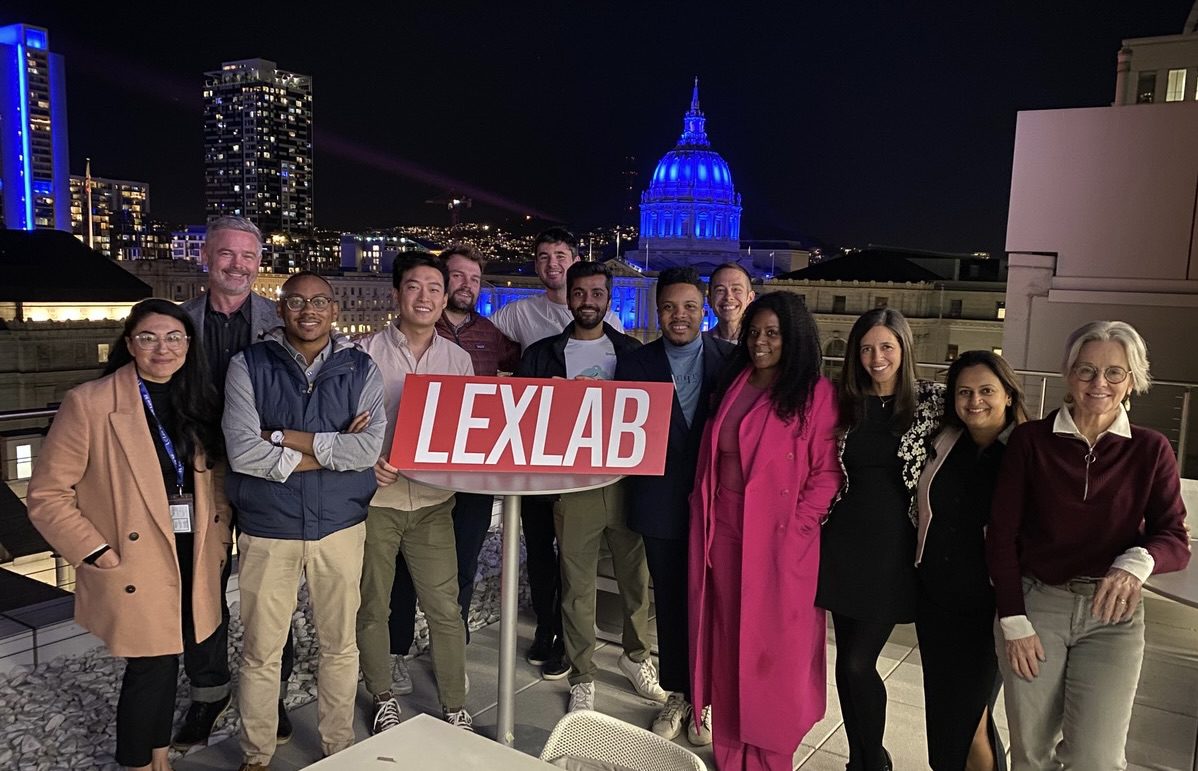
Entrepreneurs in LexLab’s Justice Technology Accelerator Program posed with law professors and students after pitching their startups at the annual Demo Day competition on Nov. 14.
Two tech startups that offer legal help to people who might be unable to afford traditional legal services took home top prizes at this year’s Demo Day, an annual business pitching competition hosted by LexLab at UC Law San Francisco.
The contest featured eight startups from LexLab’s Justice Technology Accelerator Program, which pairs startups with mentors and gives them access to valuable curriculum, guest lectures, and a network of legal tech experts and scholars. Law students interact with the startups through classes and events, sometimes working with them directly through internships and other opportunities.
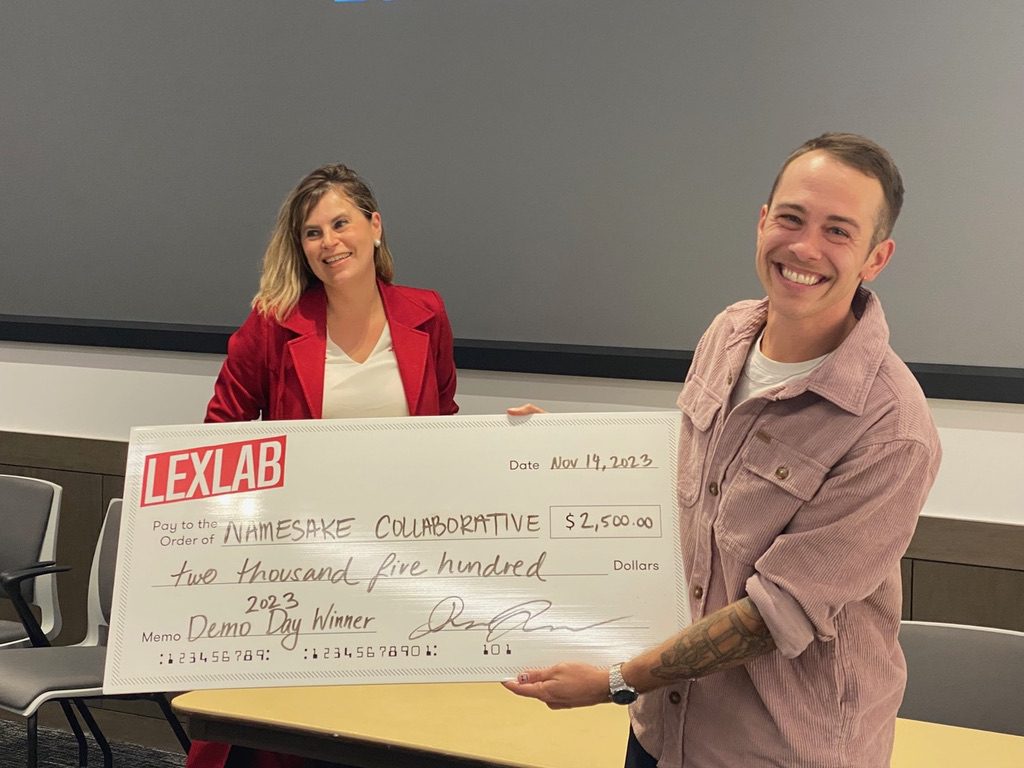
Namesake Collaborative Founder Luke Lennon (right) received a $2,500 check after tying for first place at Demo Day. Panel judge Olga Mack (left) congratulated him.
LexLab – a center focused on law, technology and innovation – joined forces this year with gener8tor, Village Capital, and the Justice Technology Association to support justice-focused tech startups in a 10-week program that ended with Demo Day on Nov. 14.
This year’s Demo Day winners were Namesake Collaborative, a platform that helps people navigate complex legal processes for changing names and gender markers; and Level, which aims to ensure everyone gets fair treatment from insurers after a car accident. The two startups tied for first place and will split the $5,000 grand prize, each taking home $2,500 in prize money.
“It’s incredibly exciting to have won this competition, especially because of the attention it brings to a very real issue: access to legal name and gender marker changes for the trans and nonbinary population,” said Namesake Collaborative Founder Luke Lennon, whose own experiences as a transgender person motivated him to launch the startup.
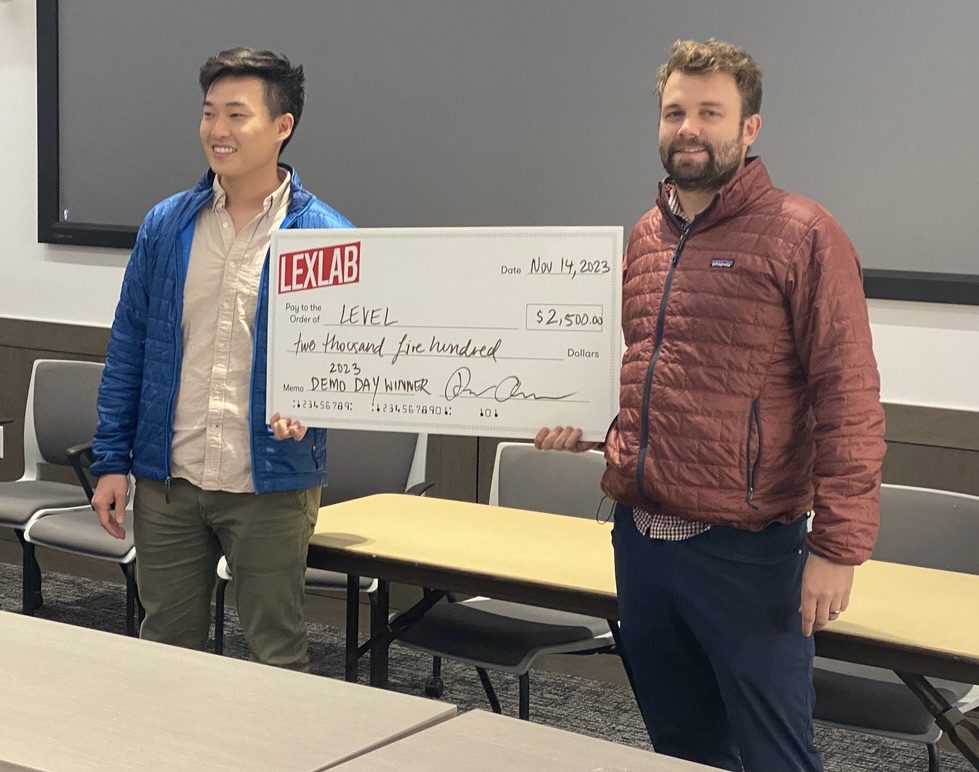
Level Co-Founders Victor Fu and Elliot Schad (left to right) received a $2,500 check after tying for first place in the LexLab Demo Day competition.
Level Co-Founders Elliot Schad and Victor Fu said they were honored to win first place after pitching their platform that helps people maximize total-loss vehicle claim offers from insurance companies.
“The LexLab program offered a unique opportunity for us to work alongside other founders building solutions to close the access-to-justice gap,” Schad said. “Throughout the program, we learned from other thought leaders in the industry that are exploring the frontiers of technology, AI and law.”
Another startup in the program, Societal Systems, took home the second-place prize, winning $2,500 in content-creation services from Briefly, a startup whose mission is to make legal information more accessible. Founded by Neil Satra and Alex Padron, Societal Systems provides monitoring tools that help protect vulnerable people under court-ordered guardianships and conservatorships.
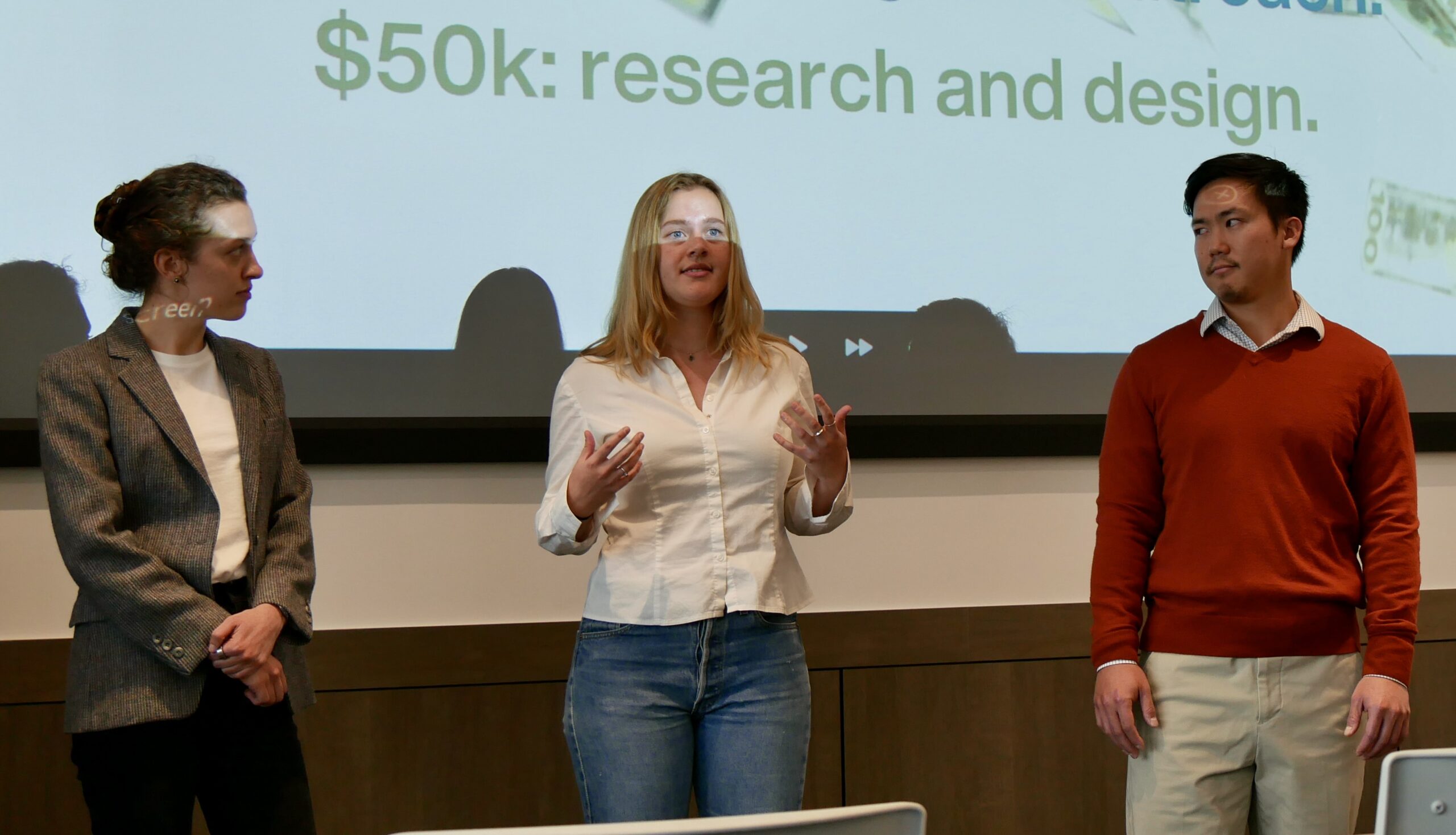
Abrielle Ivancevich ’25 (center) co-presented her team’s startup idea for “Ally” with classmates Mary Mitchell ’24 (left) and Thomas Ly ’24 (right).
This year’s Demo Day also included pitches from two teams of UC Law SF students enrolled in the course “Legal Tech: How to Build a Startup,” taught by Alice Armitage, a law professor and director of Applied Innovation at LexLab. The class teaches principles of design thinking, team building, product development strategies, and other business concepts.
One team of five students pitched “Ally,” an app to support survivors of on-campus sexual violence with important resources. Ally team member Abrielle Ivancevich ’25 said the course allowed her to hone important skills, including public speaking, storytelling, quick and creative thinking, and teamwork.
Another five-student team pitched “CornerShop Counsel,” a platform designed to help non-native-English-speaking small business owners with all aspects of contracts. Team member Matt Devaney ’24 said the course prepared him to confidently present the idea with colleagues and answer tough questions from judges.
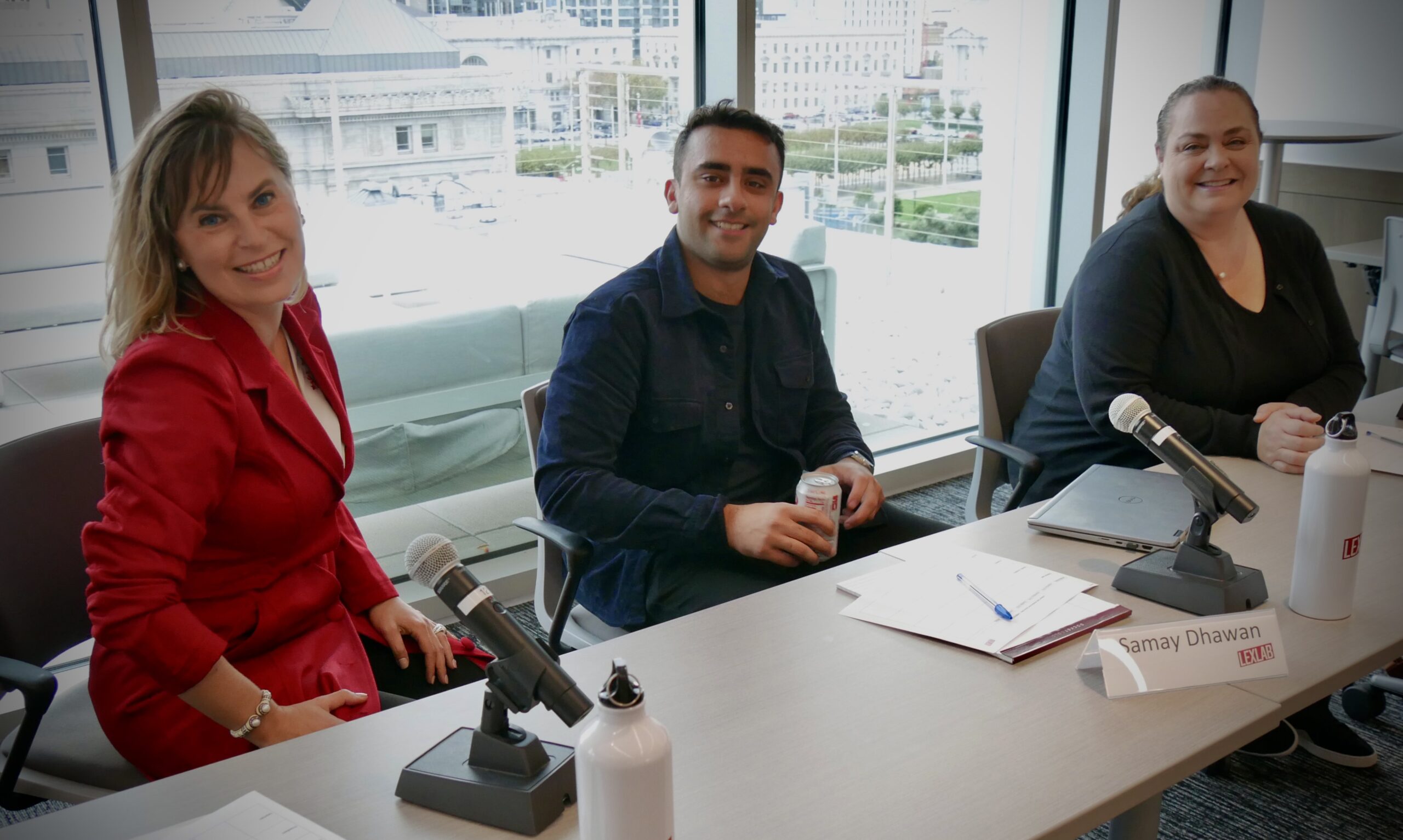
From left to right: Olga Mack of Parley Pro at Lexis Nexis, Samay Dhawan of NVentures, and Maya Markovich of the Justice Technology Association served as volunteer judges for Demo Day.
“I think this course teaches students that the legal profession need not be exclusively doctrinal, and that there are opportunities for lawyers to engage in business-oriented positions that demand creativity outside of the traditional exercise legal skills,” he said.
Demo Day participants received feedback from a panel of expert judges, which included Samay Dhawan, an investor at NVentures, NVIDIA’s Venture Capital Group; Olga Mack, vice president and CEO of ParleyPro at LexisNexis; and Maya Markovich, executive director of the Justice Technology Association.
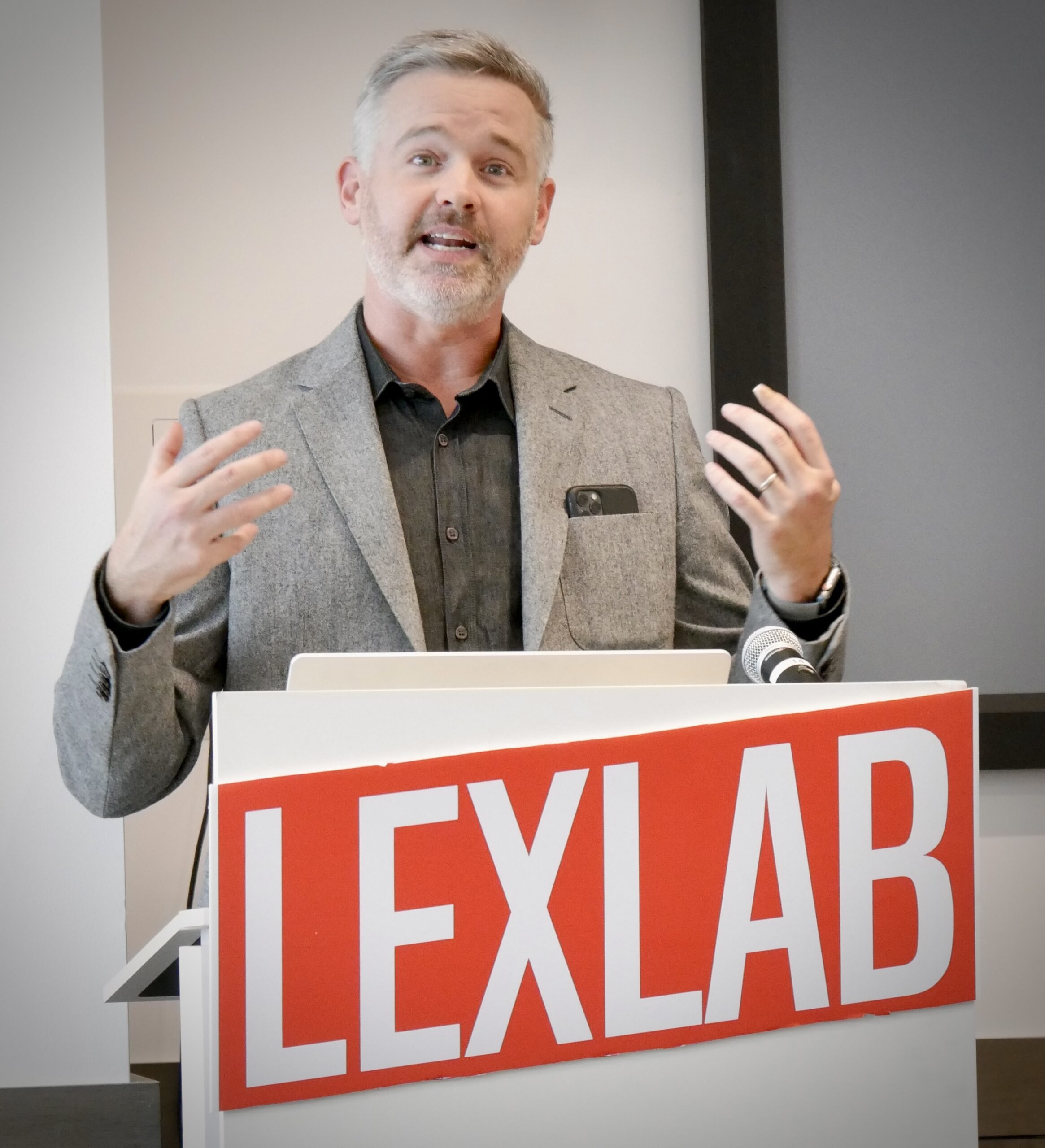
Drew Amerson is the director of LexLab at UC Law San Francisco.
Though other startup competitors didn’t win the prize, their participation in the Accelerator Program helped advance innovative ideas. The other competing startups included Clearbox Legal, which helps noncitizens apply for U.S. immigration benefits; Cover | Counsel, a platform that aims to help provide counsel for defendants that don’t qualify for a public defender and can’t afford private counsel; Freedom, an interest-free cash advance app for bail fees; Layman, which provides affordable legal tools and document creation for nonlawyers; and Litigation Friend, which helps people resolve job-related disputes with employers.
“I’m so proud of all the students and startups who participated this year. Their passion is remarkable, as is their commitment to a more equitable and accessible system of justice,” said LexLab Director Drew Amerson. “It won’t be long before we see this group making a substantial impact.”